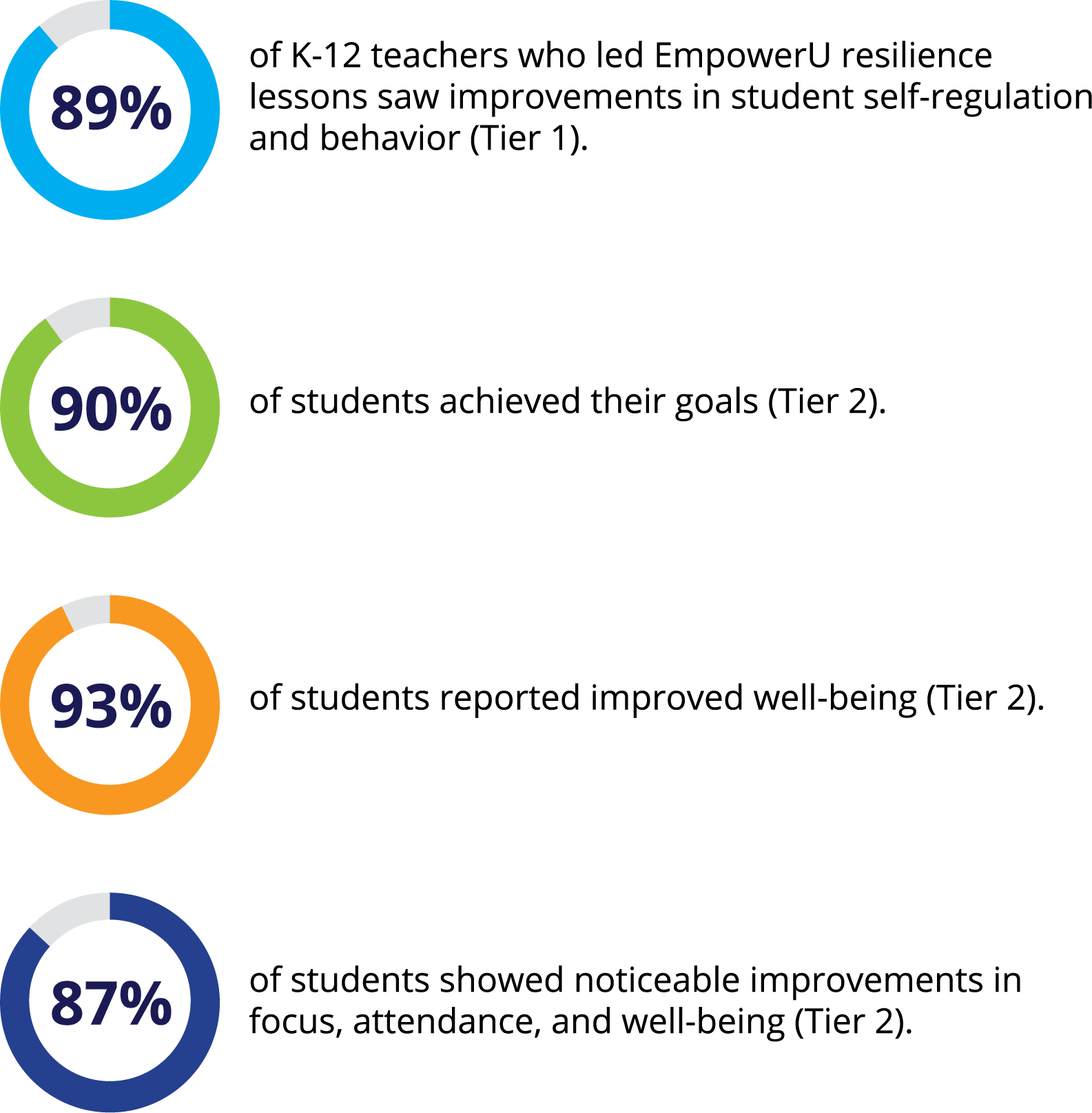Table of Contents
The recent release of the CDC’s Youth Behavior Study brings encouraging news: poor mental health among high school students decreased from 2021 to 2023. Kathleen Ethier, director of the CDC’s Division of Adolescent and School Health, called the improvements “small yet significant,” likely due to schools’ increased efforts to support student well-being. However, she emphasized that there is still much work to be done in improving student mental health.
Erica Fener Sitkoff, senior vice president of mental health strategy at FullBloom (Catapult Learning’s parent company) agrees. In a recent EdSurge article, Fener Sitkoff noted that the study “tells us that positive change is possible, and the improvements are encouraging. [It] tells us that the increased awareness and unprecedented funding that’s come since the pandemic are working. It also tells us one year of reversing the trend doesn’t mean we can let up, because the numbers still aren’t great. We should dig deeper and invest more in what’s working.”
Mental Health Prevention and Early Intervention in Schools: A Key to Student Well-Being
Many schools experiencing positive changes in student well-being have implemented universal resilience skills curricula as well as early identification and support to students at-risk. These programs equip students with essential skills like relationship-building and self-advocacy, while also providing screenings to identify those who may need additional support or interventions.
to students at-risk. These programs equip students with essential skills like relationship-building and self-advocacy, while also providing screenings to identify those who may need additional support or interventions.
Fener Sitkoff highlights school-based prevention programs as the most effective way to support student mental health before issues escalate to a crisis. These programs also help alleviate the burden on already busy school counseling staff. By implementing district-wide prevention initiatives, schools can establish common language and processes to help increase students’ confidence, motivation, and well-being—ultimately leading to better academic performance, attendance, and behavior.
School-based mental health services support student well-being in several key ways:
- Promoting a positive school climate
- Teaching problem-solving skills, healthy peer relationships, self-control, and responsible decision-making
- Providing early intervention for students struggling with depression, anxiety, grief, anger, and more
- Offering treatment programs focused on students’ mental health needs
- Helping teachers and educators recognize early warning signs of mental health issues
EmpowerU, Catapult Learning’s Resilience and Mental Health Solution
Catapult Learning is proud to provide EmpowerU services to nearly 1,000 schools and 25,000 students nationwide each year. EmpowerU is a leading provider of resilience programs for schools, proven to enhance student motivation, attendance, engagement, confidence, and overall success.
EmpowerU’s Tier 1 and Tier 2 solutions are making a significant impact on student mental health:

“I am happy again, and I love myself again. [EmpowerU] did wonders! I finally got my sparkle back :)”
Mental health prevention and intervention programs like EmpowerU are positively impacting student well-being and helping to reverse negative trends in student mental health.
